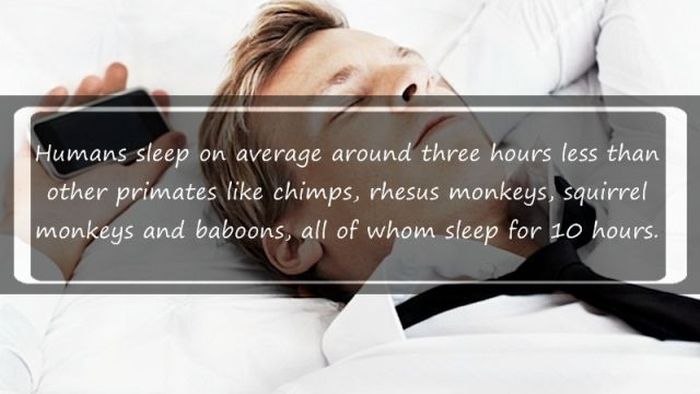|
|
Interesting Facts About Sleeping
|
Homeostatic sleep propensity (the need for sleep as a function of the amount of time elapsed since the last adequate sleep episode) must be balanced against the circadian element for satisfactory sleep. Along with corresponding messages from the circadian clock, this tells the body it needs to sleep. Sleep offset (awakening) is primarily determined by circadian rhythm. A person who regularly awakens at an early hour will generally not be able to sleep much later than his or her normal waking time, even if moderately sleep-deprived.
Sleep duration is affected by the gene DEC2. Some people have a mutation of this gene; they sleep two hours less than normal. Neurology professor Ying-Hui Fu and her colleagues bred mice that carried the DEC2 mutation and slept less than normal mice.
• Optimal amount in humans
|
|









